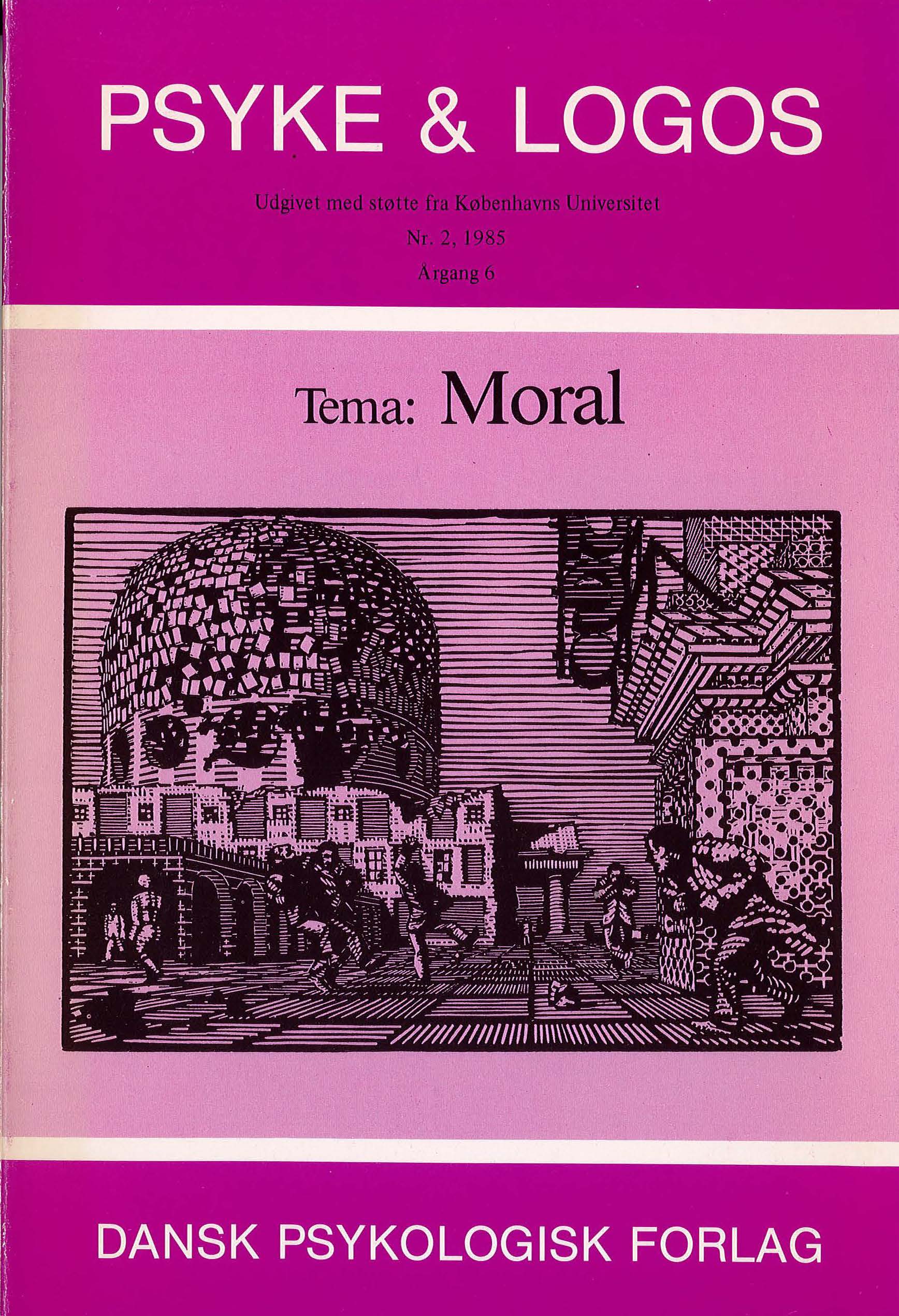Filosofisk antropologi og moralbegrundelse
DOI:
https://doi.org/10.7146/pl.v6i2.134435Abstract
This article consists of three parts. In the first part I present the three most important positions in the philosophical discussion of human nature, and I sketch the conceptions of moral life that are connected with each of these positions. The most extensively described position is the socalled person-theory, which I myself maintain. In the second part I develop the critique of the theory of needs (taken as a general theory of motivation), which was mentioned already in the first part, and I argue that the theory of motivation which is included in my person-theory (according to which part of human motivation consists of potentials, not needs) contributes to answering the normative question about man's destination, a contribution that is important for the critique of the way our type of society moulds man and human life. In the third part I give a more systematic argument to the effect that moral life cannot be grounded in a single principle, but consists of a series of irreducible types, each of which is grounded in a given type or indispensible way of acting. In other words it is my thesis, that morality - or rather the different types of morality - has an ontological foundation in the sense that each type of morality is necessarily connected with an indispensible kind of human activity.
Downloads
Published
How to Cite
Issue
Section
License
Ophavsret er tidsskriftets og forfatternes. Det er gældende praksis, at artikler publiceret i Psyke & Logos, som efterfølgende oversættes til andet sprog, af forfatteren frit kan publiceres i internationale tidsskrifter, dog således at det ved reference fremgår, at den oversatte artikel har et forlæg i en dansksproget version i Psyke & Logos. Artikler kan frit deles og linkes til på forsknings- og undervisningsnetværk (så som Blackboard). Link foretrækkes, fordi det giver oplysning om brug af tidsskriftets artikler.




